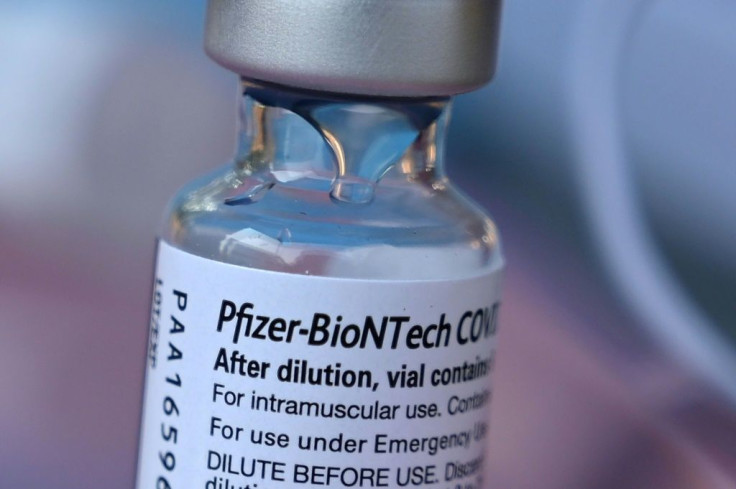Pfizer COVID-19 Vaccine Effectiveness Declines After Six Months
KEY POINTS
- The study's findings are consistent with previous studies conducted by the CDC
- The study says the Pfizer vaccine is 90% effective against the Delta variant
- Medical records of 3.4 million people aged 12 or more were analyzed for the study
A new study found the efficacy of Pfizer’s COVID-19 vaccine steadily declines over time, dropping to 47% six months after full vaccination.
The study funded by Pfizer found that after the second dose of the Pfizer-BioNTech COVID-19 vaccine, the effectiveness remains as high as 88% in the first month, but steadily declines to 47% at about six months after full vaccination.
Researchers studied the medical records of 3.4 million people aged 12 or more in the Kaiser Permanente Southern California (KPSC) health care system from December 2020 to August 2021.
They found the vaccine to be highly effective at 90% against the Delta variant in the first month after the second dose, before dropping to 53% after four months. The research also suggests that decline in effectiveness is "primarily due to waning vaccine effectiveness rather than the Delta variant escaping vaccine protection."
The findings for the first month and a steady decline afterward are consistent with the U.S. Centers for Disease Control and Prevention’s (CDC) preliminary report as well as a July study. However, the study published on Monday states vaccine effectiveness against hospital admission for infections with the Delta variant remained as high as 93% for all ages six months after full vaccination.
"Our results provide support for high effectiveness of [Pfizer-BioNTech COVID-19 vaccine] against hospital admissions up until around six months after being fully vaccinated, even in the face of widespread dissemination of the Delta variant," the researchers said in The Lancet. "Reduction in vaccine effectiveness against SARS-CoV-2 infections over time is probably primarily due to waning immunity with time rather than the Delta variant escaping vaccine protection," they added.
The new study comes just weeks after the U.S. Food and Drug Administration (FDA) approved a booster dose for a high-risk population. A booster dose will effectively improve the vaccine's efficacy.
"The good news is that we are very, very confident that a third dose, a booster, will take up the immune response to levels that will be enough to protect against the Delta variant," said CEO Albert Bourla to CNBC.
"Our results reiterate in a real-world U.S. setting that vaccination with BNT162b2 [the Pfizer-BioNTech COVID-19 vaccine] remains an essential tool for preventing COVID-19, especially COVID-19-associated hospital admissions, caused by all current variants of concern," said the researchers.
Researchers found that the two doses of Pfizer vaccine gave overall protection of 73% against COVID-19 infection and 90% protection against COVID-19 related hospitalization.

© Copyright IBTimes 2025. All rights reserved.





















